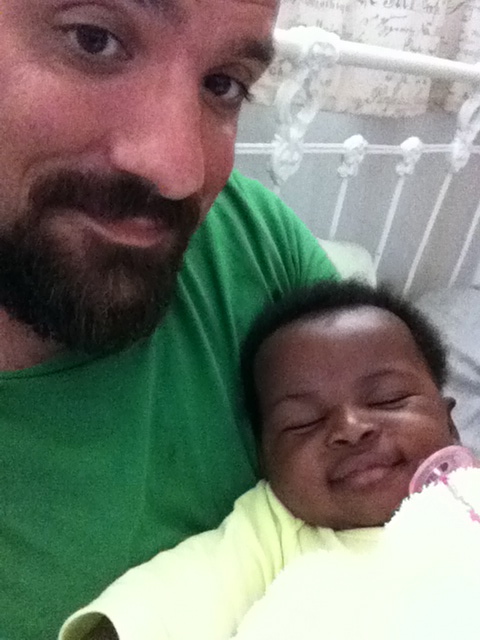Authored by Wessel van den Berg
Wessel is Programme Manager at Sonke Gender Justice, MenCare’s Co-Coordinator.
 Benjamin Franklin was wrong: Money does not equal time. At least not for children. A myth that has been exposed in sustainable development thinking can also be challenged in terms of gender-equal parenting.
Benjamin Franklin was wrong: Money does not equal time. At least not for children. A myth that has been exposed in sustainable development thinking can also be challenged in terms of gender-equal parenting.
The myth is that we can transfer capital from one medium to another without any loss of value to the system. It’s clear that environmental capital cannot be transferred back. Once oil has been transformed into money, we can’t make new crude oil again. And, as Al Gore said, we still act as if it’s not affordable to save the primary resource – the planet.
Financial capital cannot be transferred back to renew resources like oil.
I believe a similar myth informs the way we spend time doing paid work, and unpaid care work.
The myth in this scenario is that a parent can transfer the capital generated by earning money back into the capital of time spent with young children, without loss of value to the child. This idea is easy to fall for since it is the same money that keeps the household going. Here are three reasons why it’s a myth:
1) Unpaid care work is hard work too – it’s the same level of effort!
The familiar argument that plays out in suburban kitchens across the world is usually a variation on the theme of: “I need some help around here” countered by: “I work all day – and anyway, who pays the mortgage?” Care work is very hard work! Both parents spend a hard day working – one earns money, the other doesn’t. The fact that the care work is unpaid reduces its value in our current society, and hence the work of “winning the bread” counts as the “real work,” only both parents are exhausted at the end of the day. When my three-month-old daughter cannot find rest in a bed away from my body, I have to keep walking around with her until she sleeps, regardless of how my arms and feet feel. I can’t write a check for that.
2) The parent who does the unpaid care work is out of the market.
In the familiar gender-polarized situation, a father would take on the role of breadwinner and the mother the role of caregiver. In other words, one parent earns an income that is substantially more than the other parent’s income, if the caregiver has any work at all. The money earned by one parent does not equal the time spent with children on unpaid care work, especially since the person doing the care work is not getting money out of the deal – she may benefit materially, but the breadwinner still has the power to decide what happens with the money. The caregivers, most often mothers, are effectively unable to earn their own income, and the money earned by the breadwinner, most often fathers, does not translate back to the mother as financial gain. It’s worth noting that this scenario applies in a nuclear family set up where both parents are invested in the household. If one parent is absent from the household economy of care, as is often the case with fathers in South Africa, the mother has to do the paid and unpaid work. The challenge then becomes to maintain a double expenditure of effort for a single income.
3) Time spent with children is a non-renewable resource.
Finally, children grow up. And if you’ve missed the first smile, or the first steps, you’ve missed it. The only way I’ve gotten to know the differences in my daughter’s tone of voice for communicating tiredness, hunger or joy has been to spend time with her (pictures to the right and above). In this time spent with her, I didn’t just play with her; I was the one who responded when she cried – and I learned which responses worked and which didn’t.
My partner could tell me that my daughter was getting tired if her cheeks were lifting slightly when she gurgled, even though it’s the same sound she made when happy – but I would still not have gotten it. We needed to be together as parent and child, and be dependent on each other for vital needs. (She needed food and I needed sleep!) When I learned to discern the difference in her voice between joy and tiredness, and she perceived that I responded correctly, a thread of trust was sewn into our relationship. When she becomes a teenager who is going out into the world on her own, we will both depend on these threads of trust.
This base of trust is not a renewable resource, and certainly has no price. You have one chance to lay the foundation, and that’s it.
Caring for children is hard work that requires the same expenditure of energy as paid work does, and it is time lost if not taken advantage of. In terms of time spent caring for children, Benjamin Franklin was wrong.
Money does not equal time.